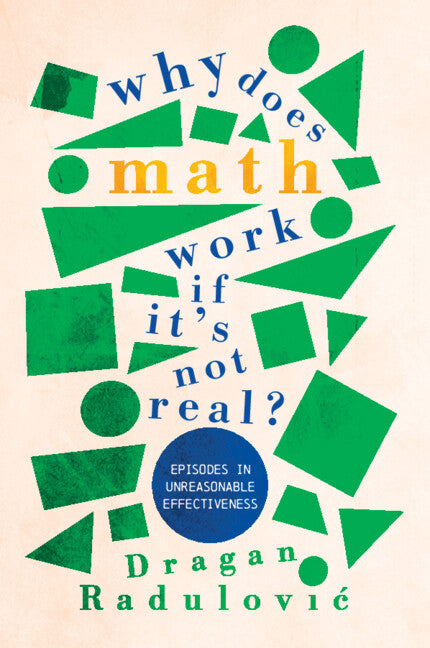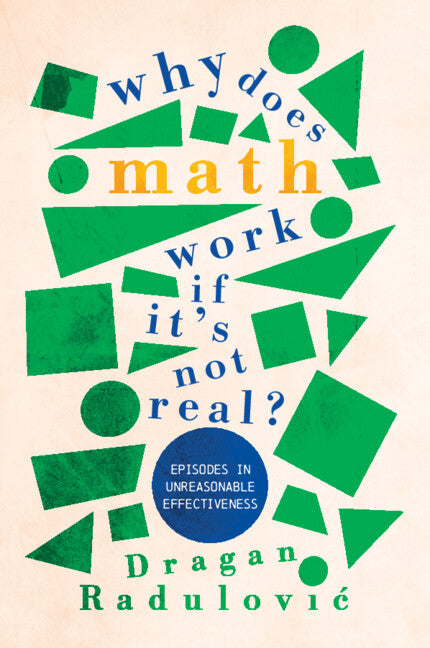Why Does Math Work … If It's Not Real?
Episodes in Unreasonable Effectiveness
Author(s): Dragan Radulović
Couldn't load pickup availability
🚚 Free UK delivery on books (excluding sale). T&Cs apply.
Free click & collect on all orders.
According to G. H. Hardy, the 'real' mathematics of the greats like Fermat and Euler is 'useless,' and thus the work of mathematicians should not be judged on its applicability to real-world problems. Yet, mysteriously, much of mathematics used in modern science and technology was derived from this 'useless' mathematics. Mobile phone technology is based on trig functions, which were invented centuries ago. Newton observed that the Earth's orbit is an ellipse, a curve discovered by ancient Greeks in their futile attempt to double the cube. It is like some magic hand had guided the ancient mathematicians so their formulas were perfectly fitted for the sophisticated technology of today. Using anecdotes and witty storytelling, this book explores that mystery. Through a series of fascinating stories of mathematical effectiveness, including Planck's discovery of quanta, mathematically curious readers will get a sense of how mathematicians develop their concepts.
- Explores why it is the case that no matter how unreal the objects mathematicians create and study are, somehow, whether a few decades or few centuries later, science encounters a phenomenon tailor-made for some of this weird mathematics
- Features interesting anecdotes, unexpected twists and turns, and flamboyant characters rarely heard in a classroom
- Consists of numerous stories that work together, but can also be read independently
- Accessible to anyone with mathematical curiosity and a basic familiarity with high school calculus (no matter if you're currently taking the course or took it decades ago)
Share


